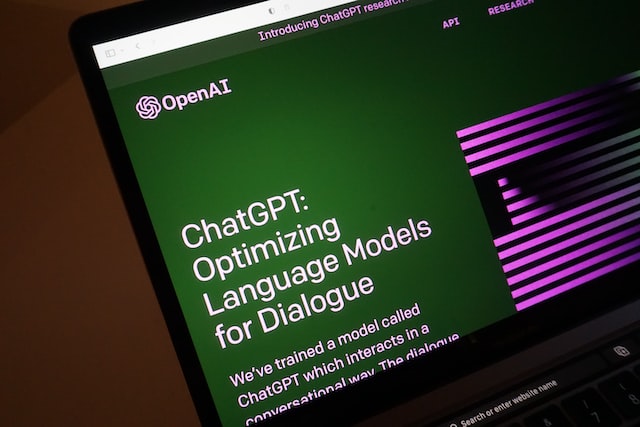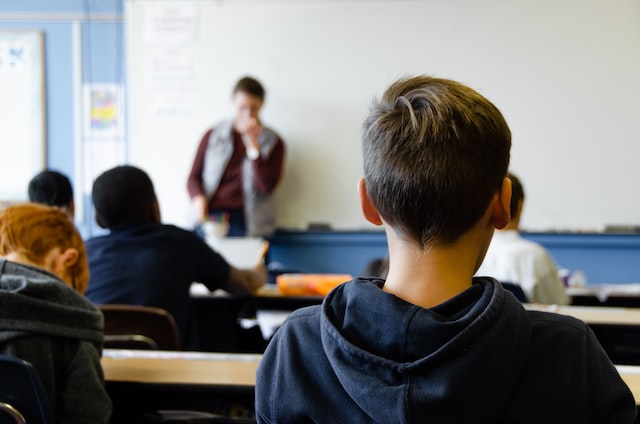Should Drama Teachers Worry About ChatGPT in School?
Cindi Calhoun | March 06, 2023
One of my colleagues recently shared that she used ChatGPT, the newest AI technology, to help her compose a notice of termination for a contractor. She was almost embarrassed to admit this (especially as we are both teachers), but at the same time, she knew that her naturally blunt and direct nature would probably not fare too well in such a sensitive letter. So the chatbot helped her compose a neutral-toned and professional piece that she could edit as necessary. She told this story as some students were nearby. Their eyes got a little big--a teacher? using AI?--but it was a great teachable moment to talk about integrity and academic honesty in the university.
The role of ChatGPT in education has sparked a hearty debate, with some K-12 schools deciding to ban the AI technology altogether. In a statement for the Chronicle of Higher Education, Ted Underwood (Professor of Information Sciences and English and Associate Dean of Academic Affairs in the School of Information Sciences, University of Illinois at Urbana-Champaign) argues that ChatGPT is a double-edged sword, not unlike other emerging technologies. Although the tool will raise concerns, it offers us a chance to look toward the future of education (if only we had a crystal ball!).
"Instead of treating ChatGPT as the horizon, look farther out. Our approach to teaching should be guided not by one recent product but by reflection on the lives our students are likely to lead in the 2030s. What will the writing process look like for them?"
INSIDE HIGHER ED: CHATGPT ADVICE ACADEMICS CAN USE NOW

ChatGPT [Photo by Rolf van Root on Unsplash]
I teach at a university with a sizable population (over 100,000 students enrolled), and like most universities, we use technology to manage our classes, whether they are on-campus or online, undergraduate or graduate. Education at all levels is relying on technology platforms--from collecting assignments, automatically grading tests, and checking for plagiarism.
That last point is the tricky one, especially with the release of ChatGPT. AI chatbots have been around for a while, but what makes ChatGPT different is both the amount of information it scrubs from the internet as well as how quickly it learns. This quick learning ability has educators nervous; not only can the AI write a complete essay on a given topic very quickly, it can also revise and include attribution and citations. And because the composition is original, plagiarism checkers like Turnitin.com or SafeAssignment likely won’t flag the submission.
How will this impact the classroom? Not surprisingly, disciplines that utilize a lot of writing (especially essay writing) such as English and the humanities have nervous teachers. One solution is to make all writing assignments done in-class. Another is a shift towards Project-Based Learning. And just as the internet is awash with chatbots, so it has chatbot checkers that calculate the probability of whether a text was written by an actual person. These are all pieces of an answer to a question that is still being defined.
The drama classroom has been aware of in-class and Project-Based Learning for a long time, and I would argue the arts in general are ahead of the curve in this regard. But there is no doubt students will use AI for their work. For us as educators to rail against it and always equate it to cheating … that’s not going to help us make peace with new technologies and how they intercede in the classroom.

How much impact will ChatGPT have in the classroom? [Photo by Taylor Flowe on Unsplash]
But we need to define what AI is and does for us. We use it constantly in our lives, from predictive text to shopping recommendations and more. The key is that the AI program learns as it works. It identifies the most common words and phrases used in our text messages and automatically provides them. It sees our web browsing and shopping habits, and offers up suggestions for our next purchase. Each AI program has a very narrow focus in what it is able to do, and despite some fairly disconcerting chatbot messages in the past (such as TayTweets on Twitter), today’s AI is not sentient and not able to teach itself new skills beyond its established programming. Tony Stark’s J.A.R.V.I.S. is still a long way away.
But back to the original question: Should teachers worry about ChatGPT in the drama classroom? In reality, the answer is probably not any more than we worry about any other technology or media. (Who among us has not locked a cell phone away in our desk drawer?)
How can teachers make positive use of AI like ChatGPT in our classrooms? The most immediate use is to generate ideas -- what ancient scholars like Aristotle called “invention.” How many students get stuck on what to write about? AI can help generate ideas centered on a theme, character, conflict, or place. Will students write a script from these ideas? Do some improvisation? Develop a devised theatre piece?
During my time as a high school drama teacher, I often had Exceptional Needs students take my classes. We didn’t have this level of advanced technology then, but I wonder how my engagement and instruction might have improved for these students? How could AI and chatbots improve the classroom experience for students on the autism spectrum, or those who struggle with reading? Is this a tool that can bridge a language gap for English Language Learners or give confidence to the students who manage anxiety?
If we see AI as a tool in the classroom, just one resource that we can use to teach our students, we can also guide them into using AI responsibly. Will students still use it to cheat? Unfortunately, yes (and those same students were probably already looking for ways to skirt doing their work). But using our drama classes to facilitate collaboration and innovation, to encourage creativity and engagement, and to moderate responsibility and integrity instils lifelong skills for students. ChatGPT or any other AI tool can help us make it happen.
Our blog post Drama Teachers: Time to Lesson Plan! offers some strategies that can help teachers innovate with objectives-based curriculum--and incorporating AI technology can be a catalyst for innovation. For some more in-depth resources, check out these blogs and resources to jumpstart your creativity!
- How to Use Social Media Inside and Outside the Drama Classroom
- Join the Drama Teacher's Green Room
- The Power of a Community-Based Drama Curriculum
Last Updated: March 07, 2023
Theatre teacher, director, writer, and seamstress
